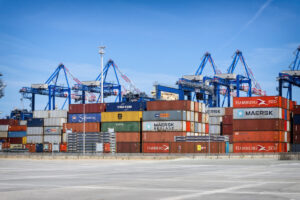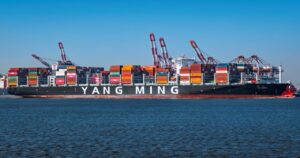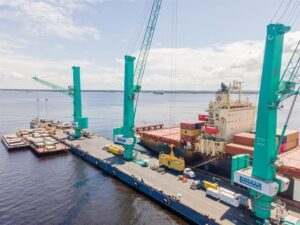Italian logistics and transport company Grimaldi Group has acquired strategic assets in the Amerikahaven area of the Port of Amsterdam through its subsidiary Amsterdam Multipurpose Terminal (AMT).
The purchased assets cover a surface area of over 200,000 square metres and include storage areas, warehouses, logistics areas, and two quays.
The first quay, which is about 500 metres long, is dedicated to ships operating on deep sea routes, while the second quay, about 300 metres long, is for the berthing of vessels serving short sea links.
AMT is a new company established ahead of the acquisition of the Amsterdam port terminal, with the Grimaldi Group holding an 80 per cent stake and Dutch logistics operator TMA Holding owning the remaining 20 per cent.
The 20-year concession obtained by AMT in the Port of Amsterdam aims to improve the services offered to the Dutch market and businesses while also developing the port’s potential as a multimodal logistic hub.
READ: Ports of Amsterdam and Cork sign partnership for green supply chain
In addition to maintaining its current services at the port, the Grimaldi Group intends to expand its operations in Amsterdam by transforming it into a gateway for imports of new vehicles and their distribution in Northern Europe.
With the port’s numerous road, rail, sea, and river connections to and from Northern Europe, the Grimaldi Group sees great potential in Amsterdam as a strategic location for its logistics and transport operations.
“Our investment in the port terminal indicates the willingness of our Group to strengthen its position in the Port of Amsterdam”, said AMT President, Guido Grimaldi.
“We will aim to facilitate the development of the port, improving the services offered to the Dutch market and businesses while exploiting and enhancing its great potential as a multimodal logistic hub, thanks to the numerous road, rail, sea and river connections to and from the rest of Northern Europe”.
Titan, the independent supplier of low and zero-carbon fuels, announced today its LBM production project for 200,000 tonnes of LBM per year.








